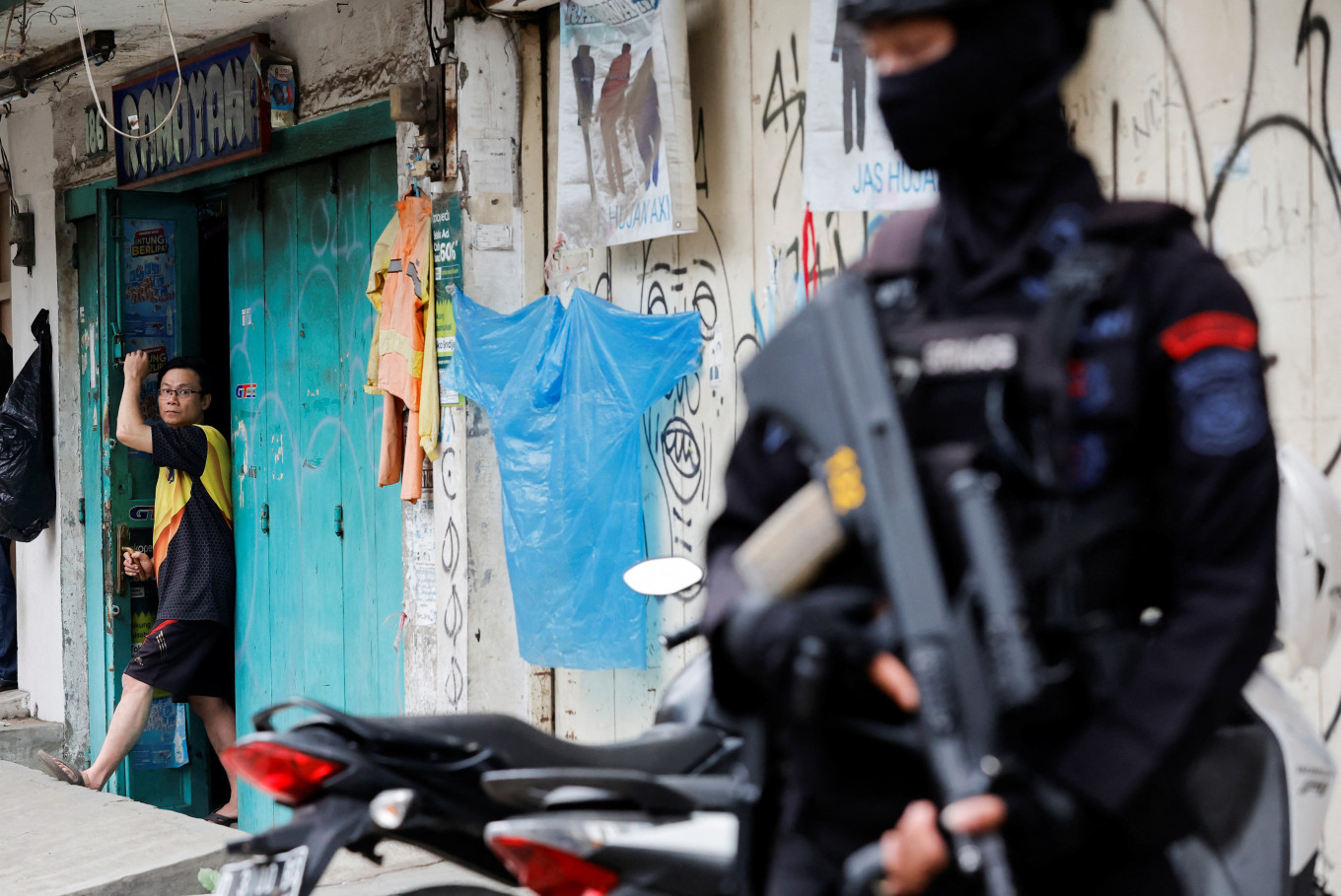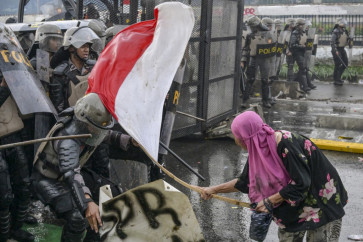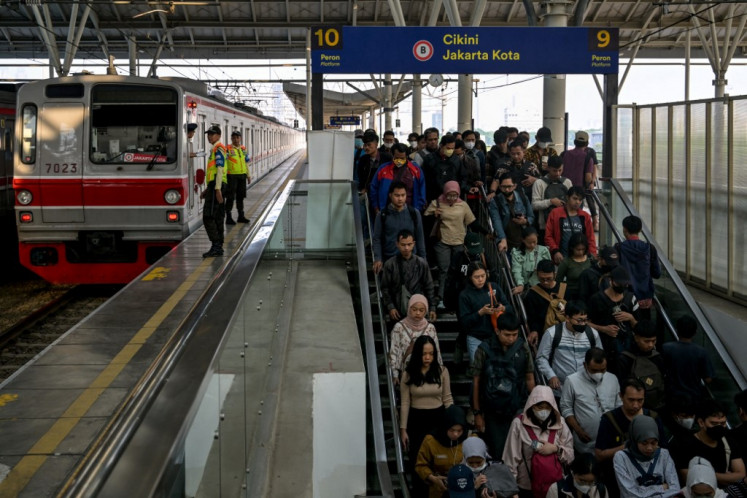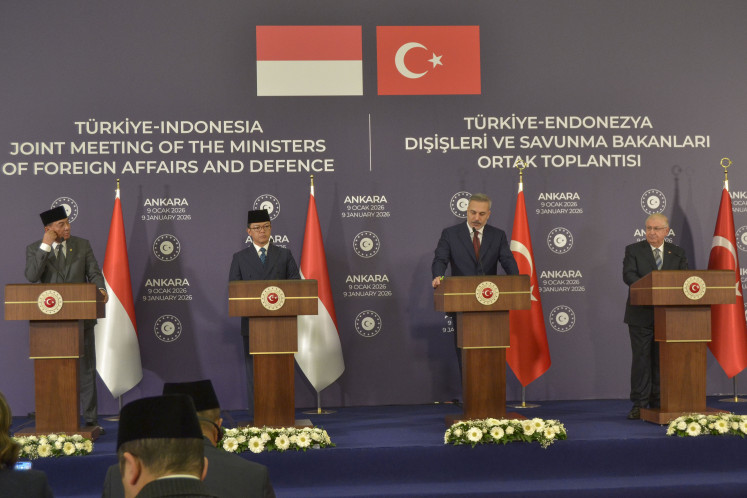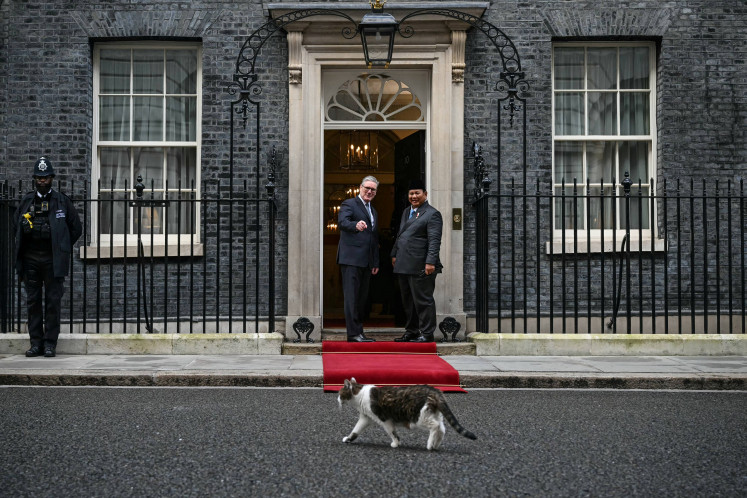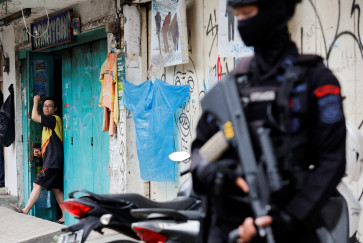Popular Reads
Top Results
Can't find what you're looking for?
View all search resultsPopular Reads
Top Results
Can't find what you're looking for?
View all search resultsExtremist tic-tac-toe: How the new penal code correlates with the Bandung attack
Ostensibly, even though the Indonesian criminal-reform bill is radical and goes against many of the values of freedom of speech and liberty venerated by many Indonesians, it is still not enough for the extremists, who want more and harsher punishments for immorality/deviant behavior.
Change text size
Gift Premium Articles
to Anyone
It has only been a short time since the deadly Bandung, West Java, attack on Wednesday. There were previous notable terrorist attacks in 2021, such as in Makassar, South Sulawesi, at a cathedral by a newlywed couple, followed a month later by a lone woman attempting to shoot up a police station in Jakarta. Though these attacks could not be regarded as massive in scale regarding casualties, they do reveal a disturbing pattern.
In the children’s game of tic-tac-toe, opponents try to connect three crosses or circles together based on their reading of what the other person will do, within the laid-out grid. Ostensibly something similar might be happening in Indonesia now between the extremists and the state.
I unfortunately have seen this happen numerous times as an observer of my country, which has been beset, perhaps, among the most in the world by terrorism in recent history: Pakistan.
In Pakistan, extremist groups would test the will of the state by setting out a campaign of frustration of the general public through a “war of a thousand cuts”. This is the policy of repeated small- to medium-scale attacks on the state which causes security vacuums; such attacks do not necessarily need massive planning and logistics but are repetitive and led by “demand and supply”, leading to public frustration at the state for ineffective control of law and order.
The terrorists hope to exert pressure on the state through the electorate of the state, its people. Citizens get frustrated by increasing attacks and demand action by the state, which sometimes actually facilitates the terrorists as the state starts to negotiate with extremists in the hope of a negotiated settlement or ceasefire or maybe in the hope that they “will see sense”.
Another pattern is of increasing escalation to force concessions appearing on the horizon. The newly passed Criminal Code could be a part of this pattern as it has sparked huge controversy. The law criminalizes sex outside marriage and insulting the president and state ideology (besides other things), albeit through limited modalities. This reminds me of the Hudood Laws (translated as “limitations”) in 1979, brought in by ultra-right-wing Islamist president Zia-ul-Haque in Pakistan.

